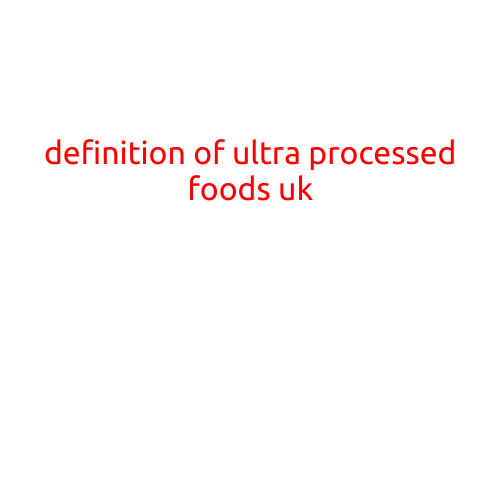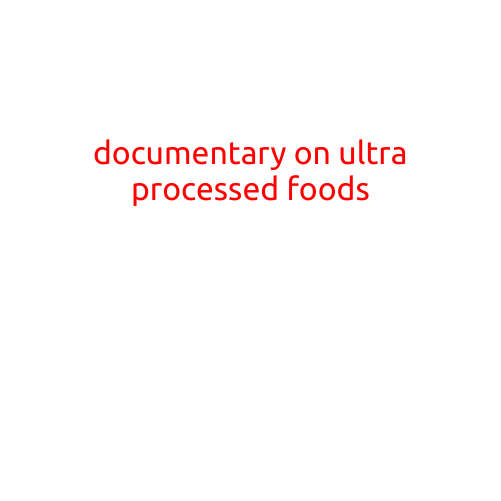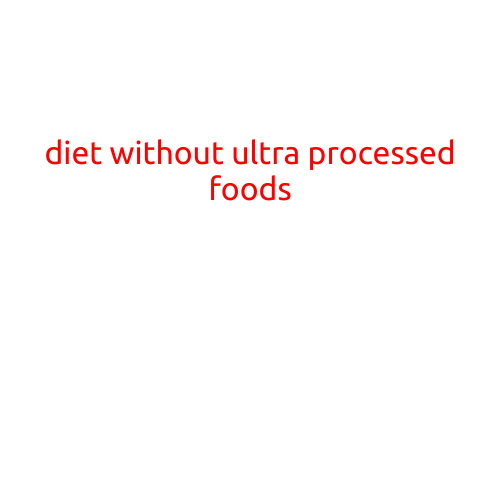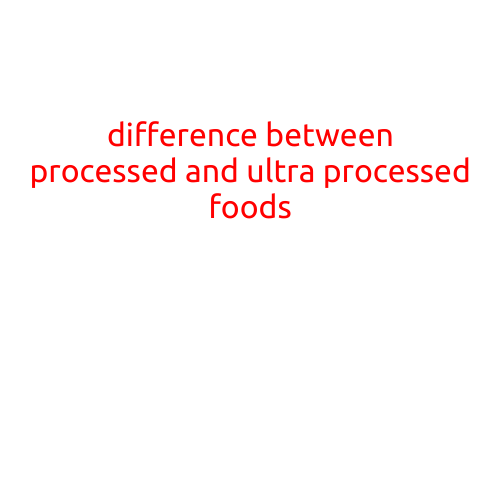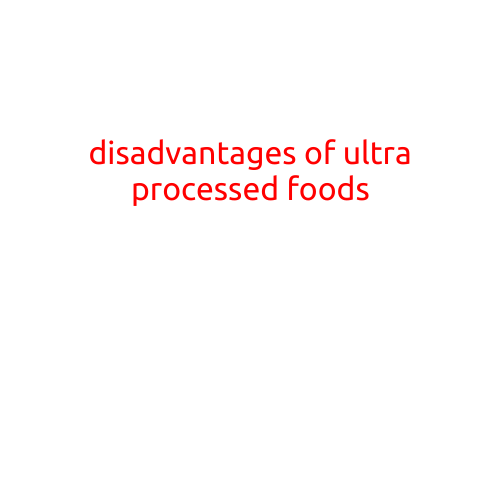
The Disadvantages of Ultra-Processed Foods: Why You Should Be Cautious
Ultra-processed foods have become a staple in many people’s diets, often disguised as convenient and time-saving options. However, research is revealing that these foods can have serious negative effects on our health and well-being. In this article, we’ll explore the disadvantages of ultra-processed foods and why it’s essential to limit your consumption of them.
What are Ultra-Processed Foods?
Ultra-processed foods are products that have been heavily transformed from their natural state through various processes, such as extrusion, baking, and frying. They often contain ingredients that are not commonly found in nature, like preservatives, artificial sweeteners, and hydrogenated fats. Examples of ultra-processed foods include:
- Packaged snacks, like chips and crackers
- Frozen meals, like pizza and macaroni and cheese
- Sugary drinks, like soda and sports drinks
- Processed meats, like hot dogs and sausages
- Baked goods, like cakes and cookies
Disadvantages of Ultra-Processed Foods
- Increased Risk of Chronic Diseases: Consuming ultra-processed foods regularly has been linked to an increased risk of chronic diseases, such as obesity, type 2 diabetes, cardiovascular disease, and certain types of cancer.
- Nutrient Deficiencies: Ultra-processed foods are often devoid of essential nutrients, like vitamins, minerals, and fiber, which are crucial for maintaining good health.
- Addiction and Overconsumption: The high levels of sugar, salt, and unhealthy fats in ultra-processed foods can lead to addiction and overconsumption, contributing to weight gain and other health problems.
- Impact on Gut Health: The altered gut microbiome caused by consuming ultra-processed foods can disrupt digestion, leading to symptoms like bloating, abdominal pain, and irritable bowel syndrome.
- Environmental Concerns: The production and disposal of ultra-processed foods contribute to environmental pollution, climate change, and waste management issues.
- Loss of Traditional Food Culture: The proliferation of ultra-processed foods has led to the decline of traditional cooking practices and the loss of cultural heritage associated with food preparation.
- Lack of Transparency: The ingredients and manufacturing processes used in ultra-processed foods are often hidden from consumers, making it difficult to make informed choices.
- Dependence on Addictive Ingredients: The use of addictive ingredients, like sugar and salt, in ultra-processed foods can lead to cravings and withdrawal symptoms, making it challenging to quit.
- Impact on Mental Health: Some research suggests that consuming ultra-processed foods may contribute to symptoms of depression, anxiety, and other mental health issues.
- Economic Burden: The high cost of ultra-processed foods and the healthcare costs associated with their consumption can put a significant strain on individuals and society as a whole.
Conclusion
While ultra-processed foods may seem convenient and appealing, the disadvantages far outweigh any perceived benefits. It’s essential to be aware of the potential risks and to prioritize whole, minimally processed foods in your diet. By making informed choices, you can protect your health, support local communities, and contribute to a more sustainable food system.
